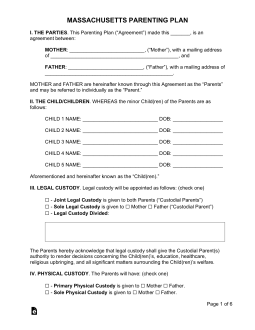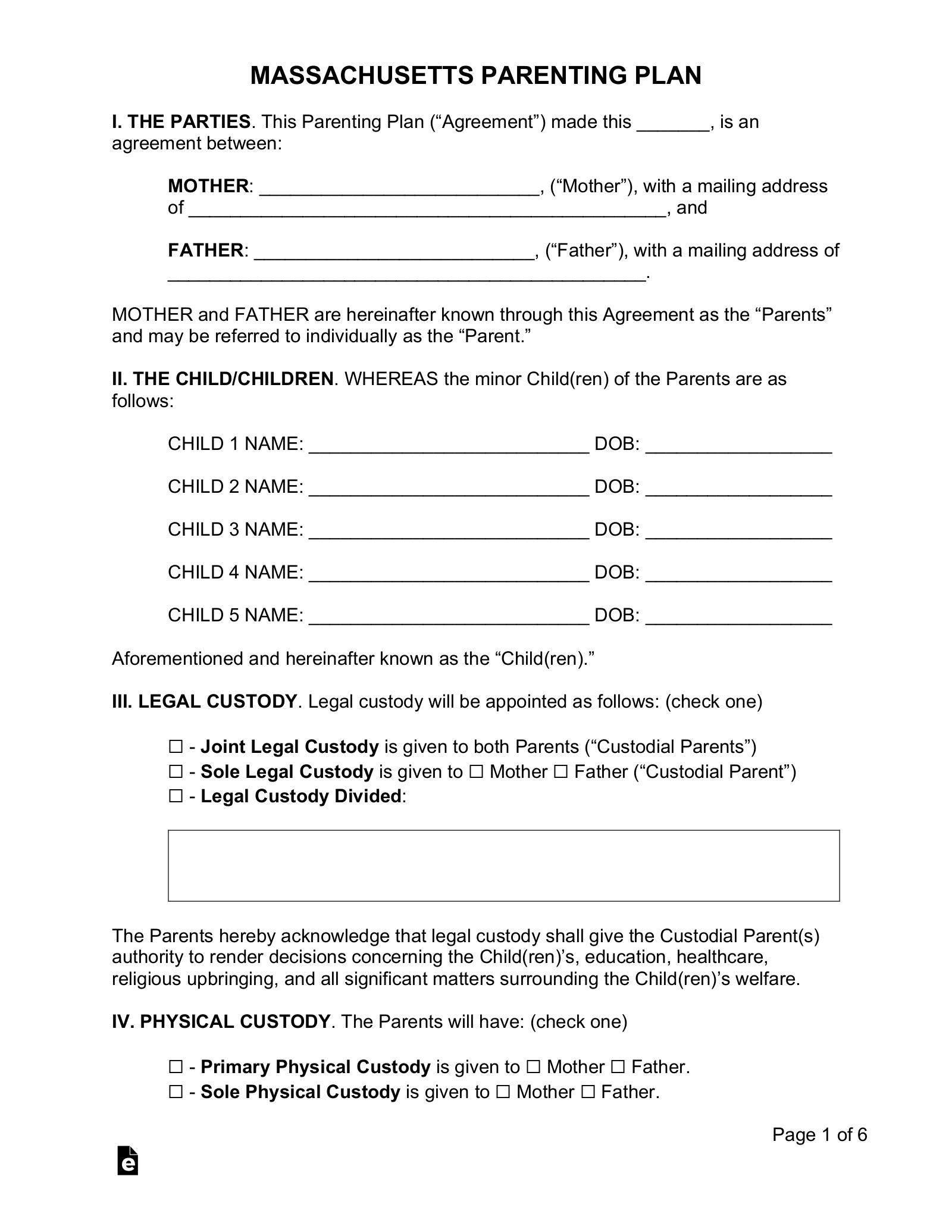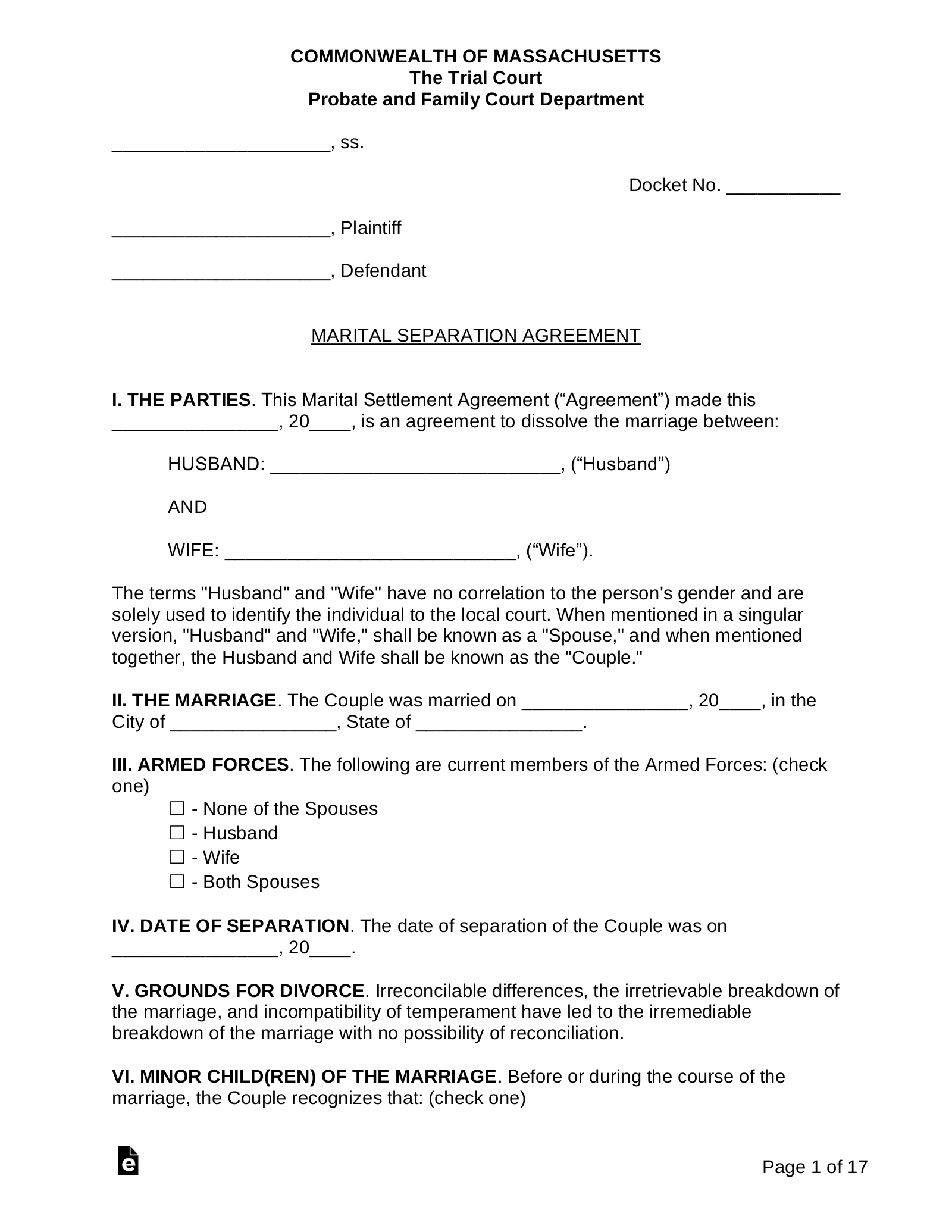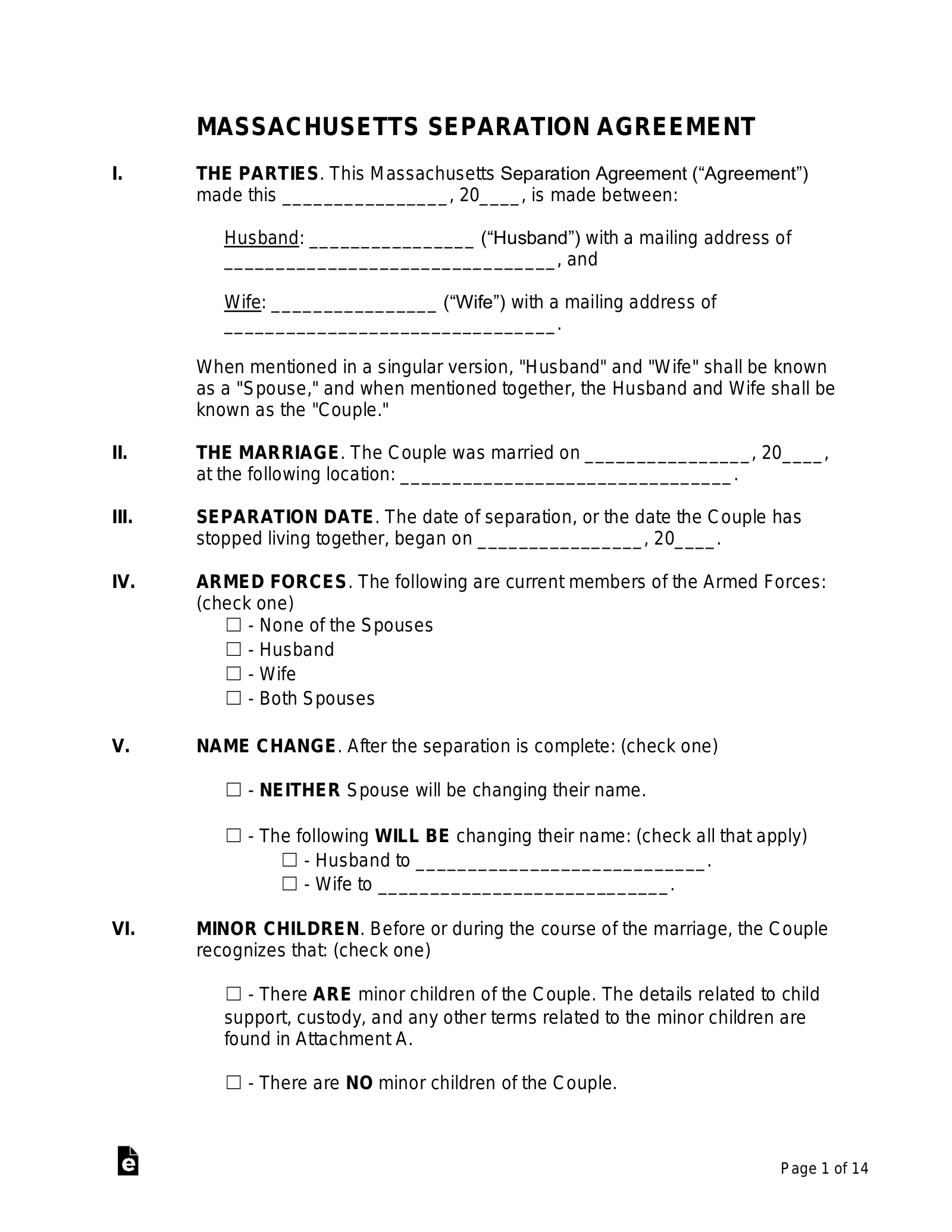Updated March 26, 2024
A Massachusetts custody (parenting) plan is a required agreement between the parents of a minor child seeking shared custody. It sets forth the details of how shared custody will be implemented, addressing the child’s education, health care, procedures for resolving disputes between the parents, living arrangements, visitation, and more. It must be approved by the court to become legally binding.
Child Custody Factors
In determining a custody arrangement that serves the child’s best interest, Massachusetts courts will consider:
- Whether the child’s present or past living conditions adversely affect their physical, mental, moral, or emotional health
- Whether any family member has a history of alcohol or substance abuse
- Whether the parties have a history of being able and willing to cooperate in matters concerning the child
- Whether there is evidence of past or present abuse toward a parent or child
When considering sole custody, the court will:
- Try to preserve the relationship between the child and the primary caretaker parent
- Consider where and with whom the child has resided within the six months before the proceedings
- Consider whether one or both parents have established a personal and parental relationship with the child
Table of Contents |
How to File for Custody in Massachusetts
1. Agree on a Parenting Plan
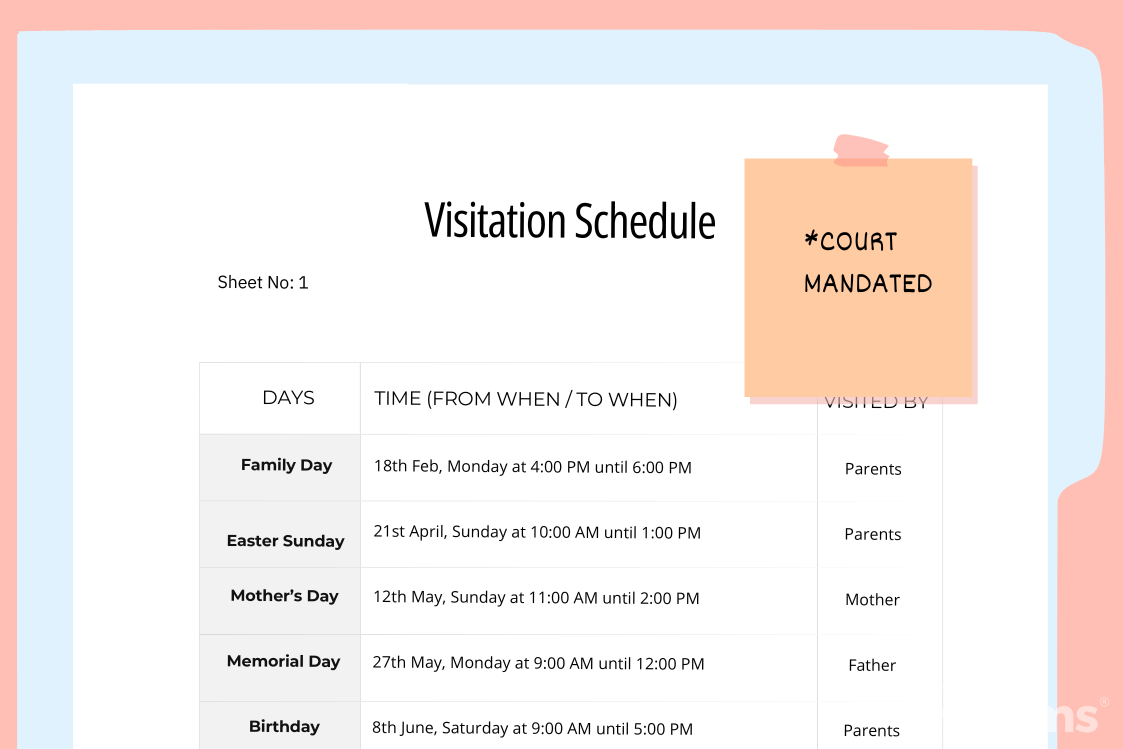
For married parents, custody is handled as part of the divorce process. If you and the other parent are seeking shared custody, Massachusetts courts require a parenting plan, also known as a custody agreement, to be submitted for approval.
The parenting plan should outline agreed-upon terms regarding scheduling, visitation, parental responsibilities, and other issues related to childcare.
2. Calculate Child Support
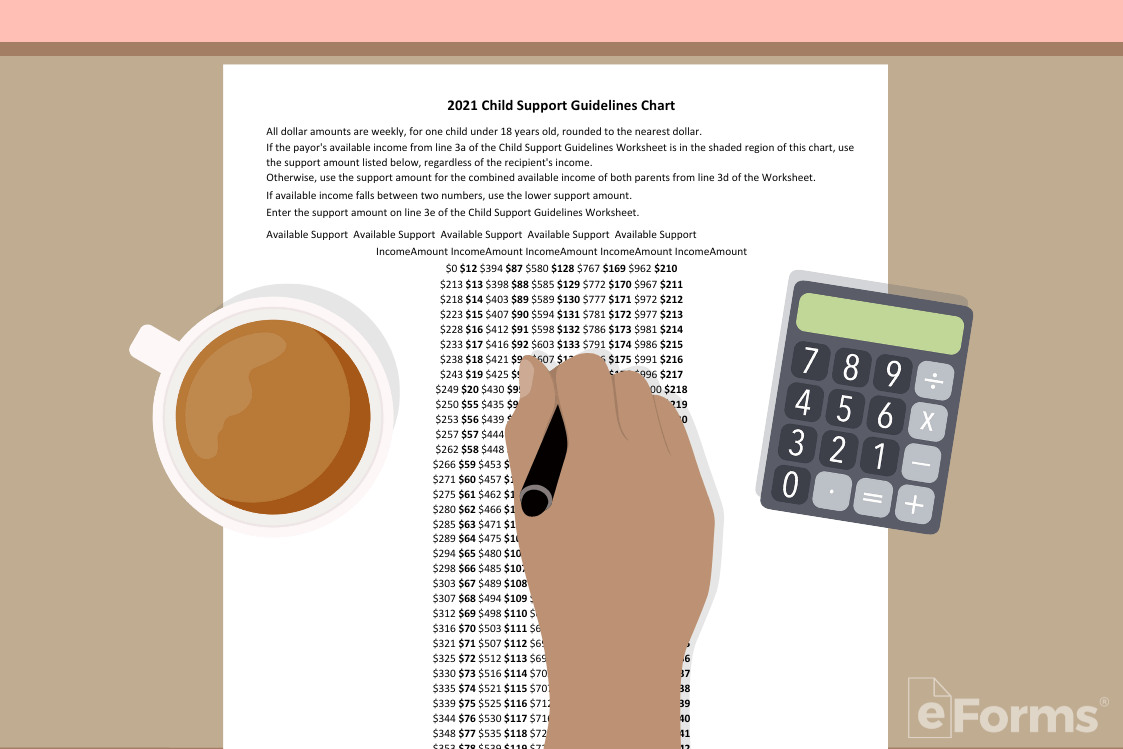
Use the state’s Child Support Guidelines Chart to estimate how much child support may be ordered by the court based on the parents’ combined income. Complete the Child Support Guidelines Worksheet (CJD 304) to file with the court.
3. Complete Required Forms
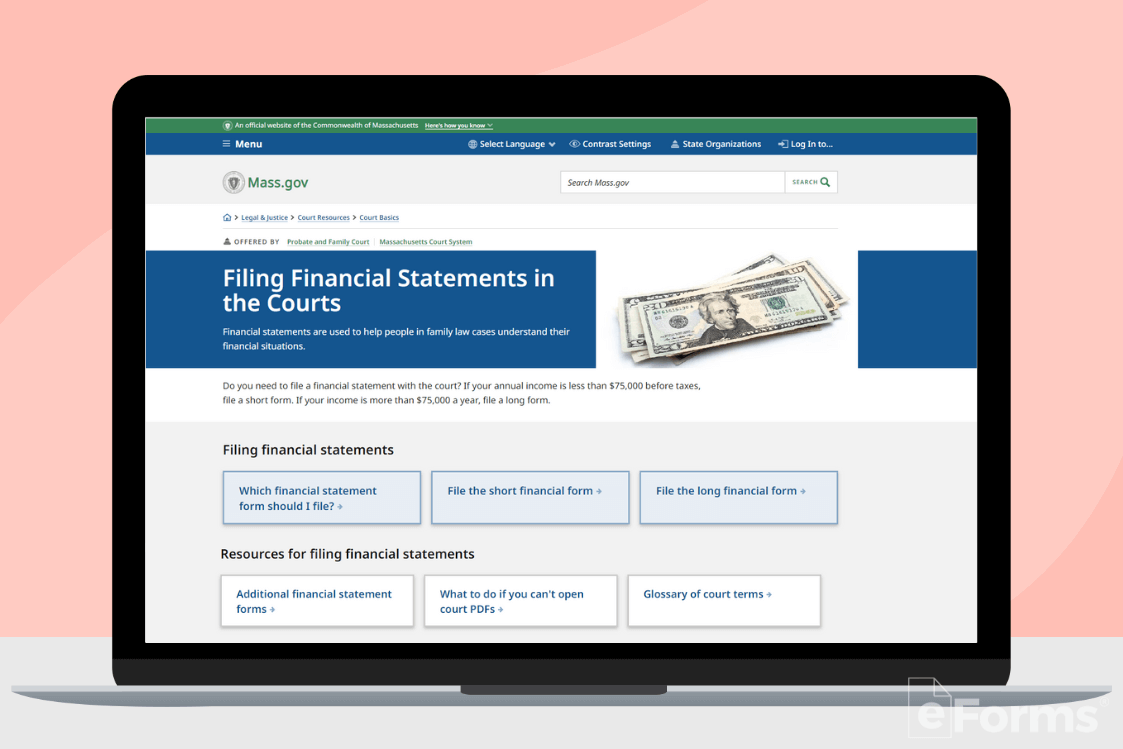
The following forms should be completed to file for custody:
- Divorce or Annulment, Certification Vital Statistics (R-408)
- Complaint for Divorce (CJD 101) or Joint Petition for Divorce (CJD 101A)
- Financial Statement
- Child Support Guidelines Worksheet (CJD 304)
If you and the other parent were never married, paternity must be established either through a court order or voluntary acknowledgment. The following forms must also be completed:
- Affidavit of Care and Custody (OCAJ-1 TRC IV)
- Complaint for Support-Custody-Parenting Time (CJD 109) (for cases involving voluntary acknowledgment of paternity)
4. File the Forms
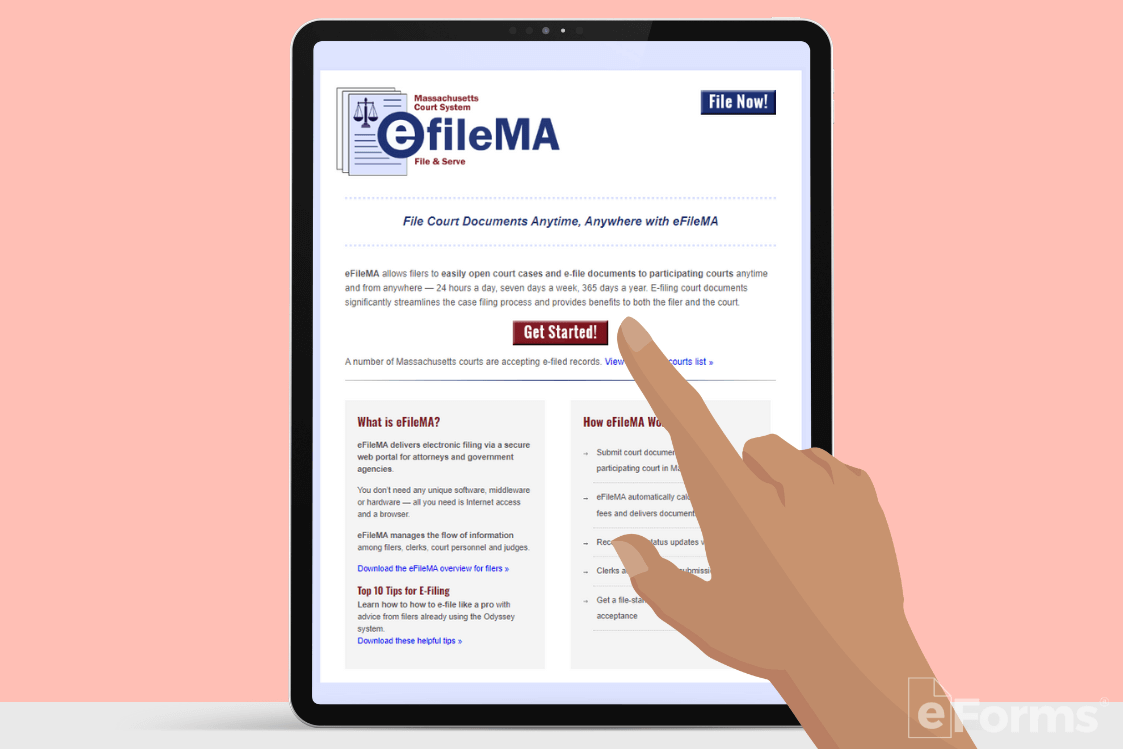
The completed forms must be filed with the Probate and Family Court in the county where you and your spouse lived together, or where the child lives. This can be done in person at the register’s office, by mail, or electronically via eFileMA.
The filing fee for divorce and child custody cases is $215. For cases involving support, custody, parenting time, separate support, or paternity, the fee is $115. If you are unable to pay the court fee, you may be eligible for a waiver.
5. Serve Complaint
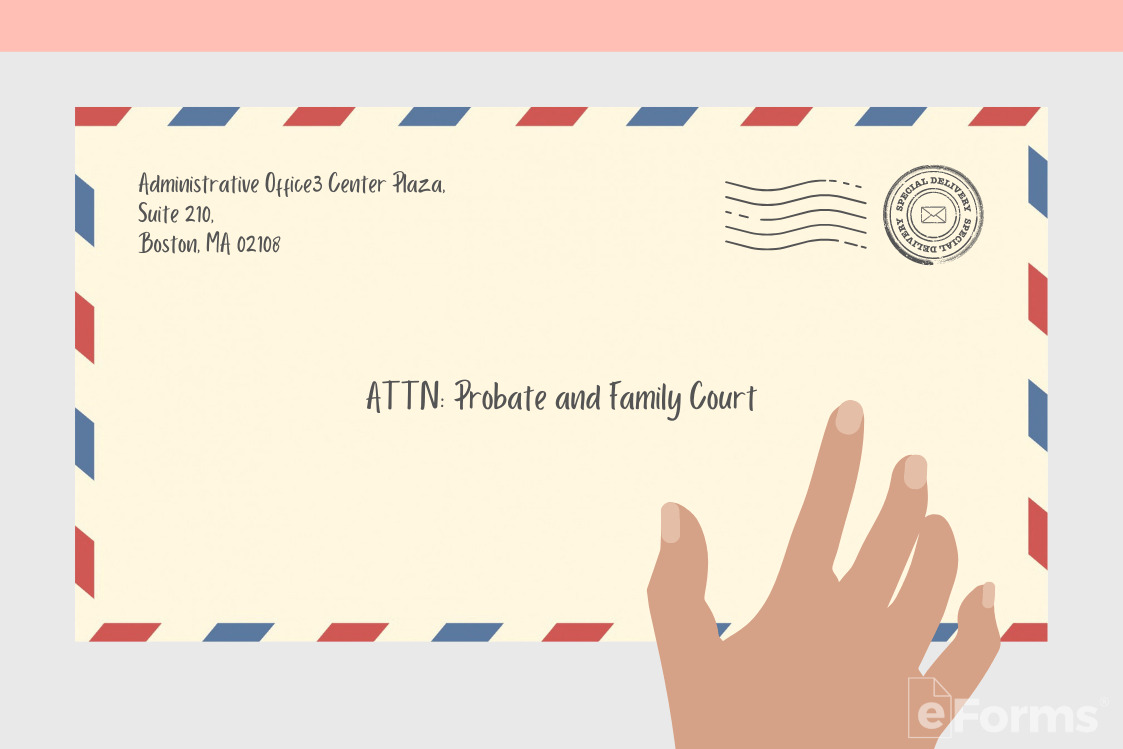
Once the paperwork has been filed, the court will mail a summons to be served to the other parent along with a copy of the complaint. File the proof of service with the court in person, by mail, or via eFile.
6. Attend Hearing
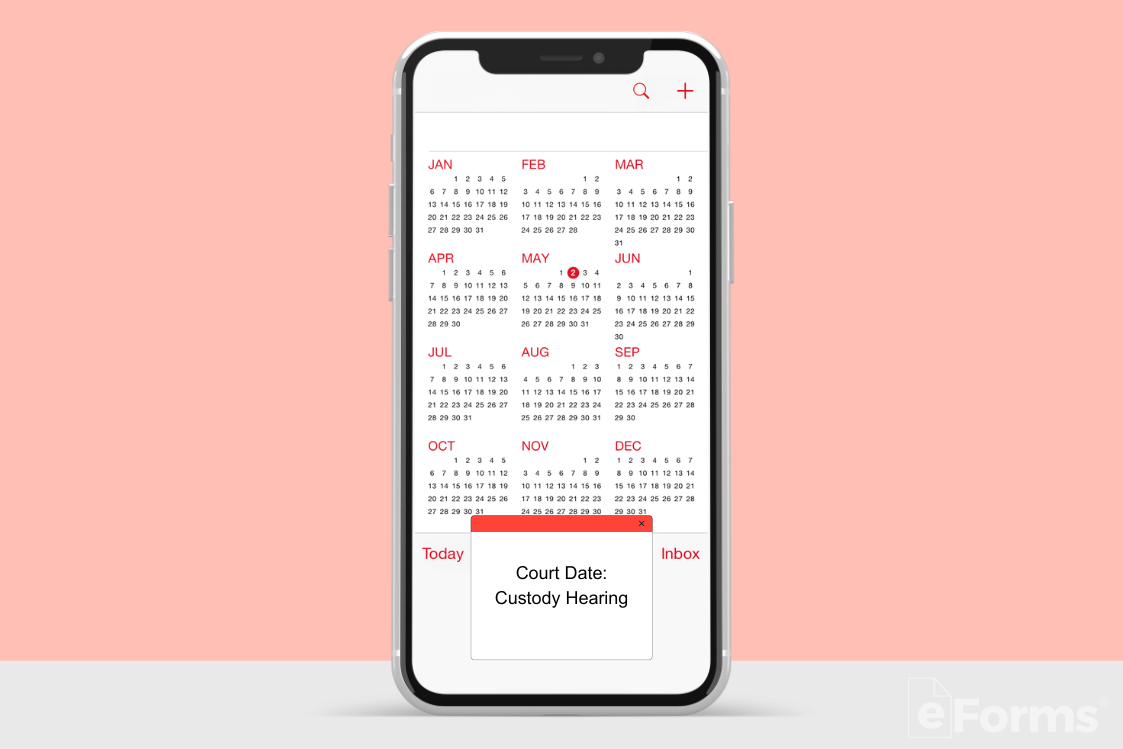
Ask the court about the date of your first hearing, where a judge will consider the proposed parenting plan and ask questions to determine a custody arrangement that serves the best interest of the child. Once a court order is issued, it becomes legally binding unless modified through the court.
Custody Laws
- Child’s preference: While there is no statute dictating that courts must consider a child’s preference when determining custody, a judge may consider the child’s preference if they are of sufficient maturity and age.
- Massachusetts Child Custody Jurisdiction Act: Chapter 209B
- Temporary custody: § 208:28A
- Visitation rights of abusive parent: 208 § 31A
Related Forms

